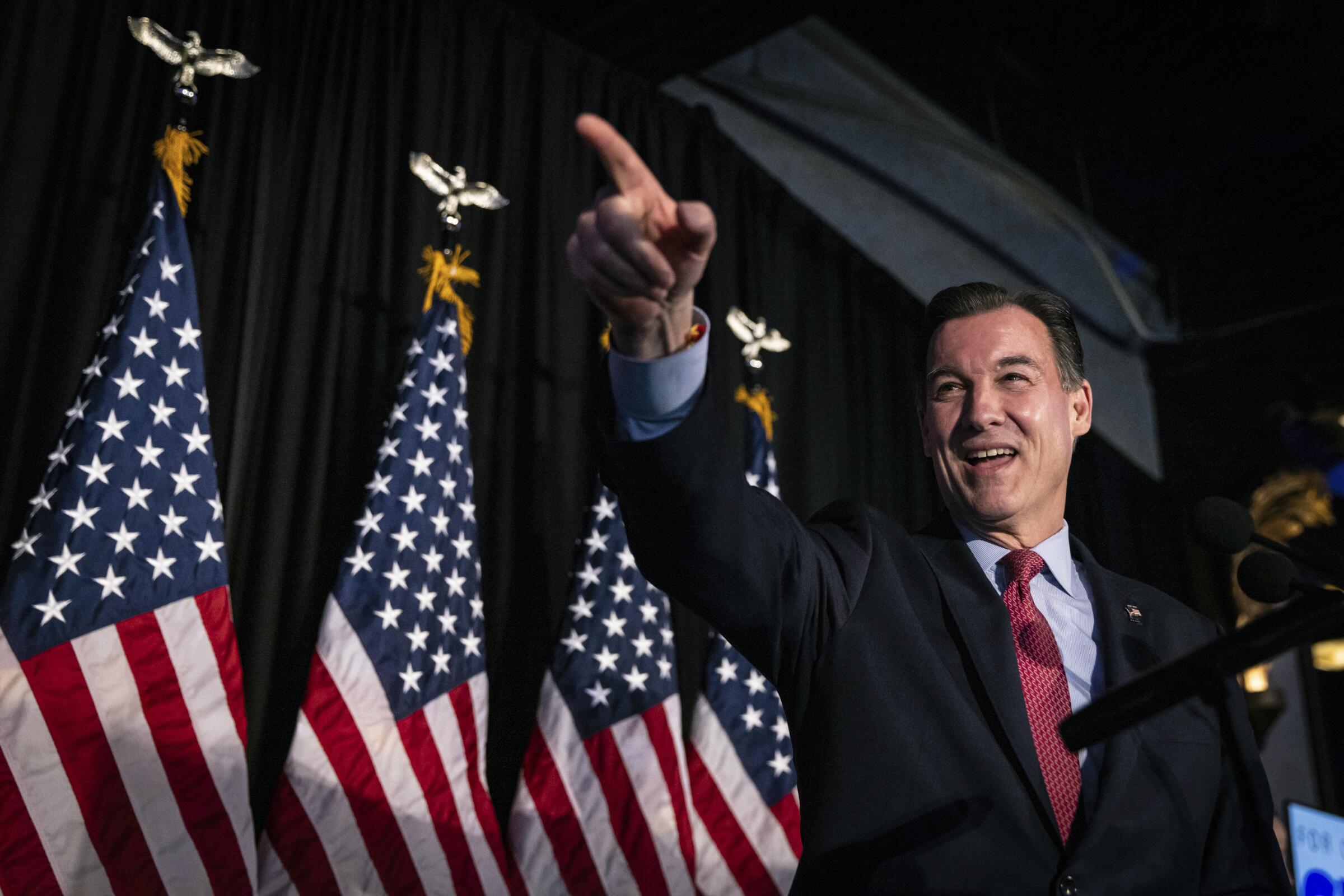That’s an unsettling prospect for some California Democrats, who face the difficult task of reassuring voters concerned about chaos at the border without alienating voters on the left who strongly favor immigrant rights.
“The good thing about the Suozzi victory is that Suozzi won. The bad thing about the Suozzi victory is Suozzi won,” Rep. Lou Correa (D-Santa Ana) told my colleague Ben Oreskes. “He doubled down on immigration,” Correa added. “Maybe that’s the winning formula. But to have immigration now be the piñata that everybody’s going to beat up on is not good.”
Even in his heavily immigrant district, which contains large Latino and Vietnamese communities, the “visceral reaction to the refugees, it’s universal,” Correa said.
“I have Latinos, I have undocumented [immigrants] saying, ‘Why are you letting in so many people when I busted my ass for 30 years, and I can’t get a work permit?’” Correa said. In a political campaign, he added, “You cannot sit there and explain to people. ... You’ve got to come up with a slogan. Is the slogan going to be ‘Kick them all out’? That’s the challenge we have.”
Immigrant advocates have been trying to avoid that. They stress that Suozzi wasn’t a one-note candidate. Amid his calls for tougher border enforcement, he also embraced traditional Democratic themes, including legalization for “Dreamers,” young immigrants who came to the U.S. illegally as children.
“As immigration advocates, we have qualms with the specifics” of Suozzi’s campaign, Vanessa Cárdenas, executive director of America’s Voice, a major immigrant advocacy group, said in a statement.
“Yet for all the rightful criticism, it’s important to understand the rest of Suozzi’s approach and to not let the short-hand takeaway be that ‘Suozzi won by running as a border hawk, full stop.’”
“In fact, Suozzi adopted a both/and approach, addressing concerns over the border but also not stopping there, and instead broadening his immigration focus” to include “full-throated support for citizenship and legal status for long-settled immigrants,” she said.









